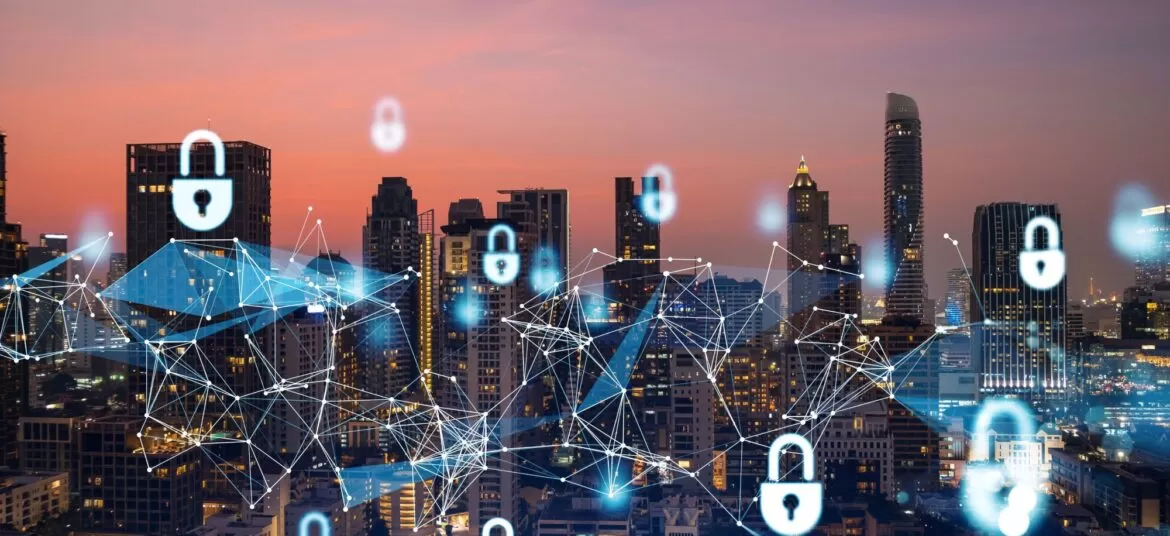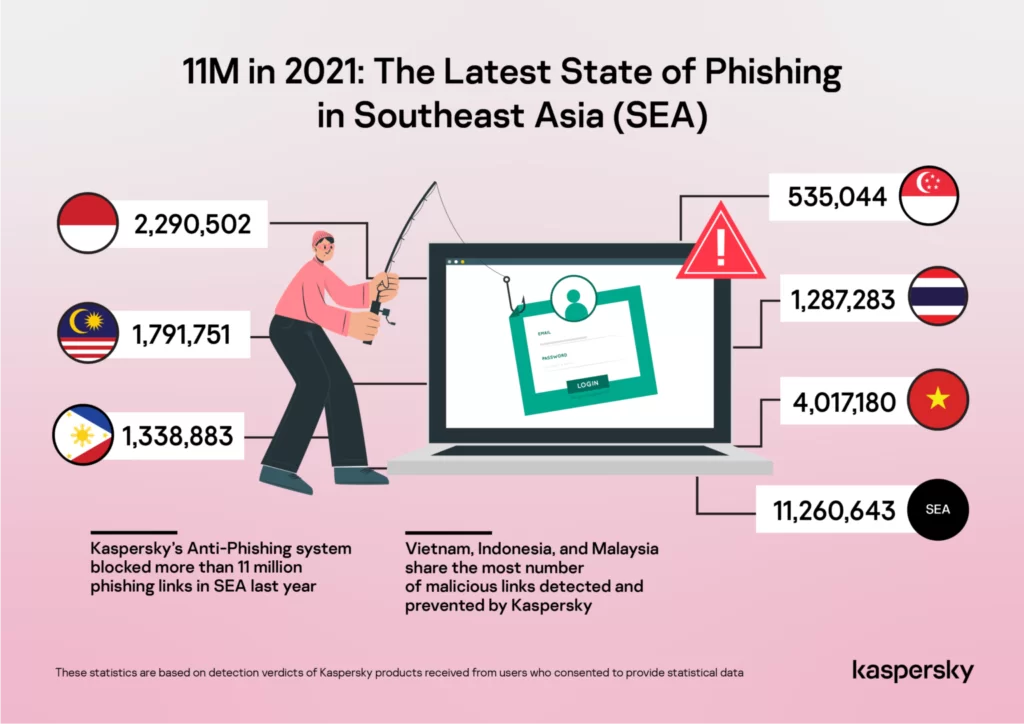Asean companies need to prioritize email cybersecurity as digital business transformation accelerates.

Remote desktop protocol attacks have increased by 149 % from 2019 to 2021. Confidential business information is compromised owing to work-from-home environments, especially for non-IT staff. Medium and largescale enterprises were saving on physical operating costs but compromising on data. A lot of companies gave out laptops to their remote employees. Most of these devices did not come with cyber-security features.
Even as COVID-19 protocols are being relaxed, people are preferring work-from-home. Rightly so, ASEAN Desk for Cybercrime Operations Interpol has listed “Business E-mail Compromise” as the leading category (77% of cases) among cyberthreats categories. The shift towards mass remote work has brought on new cybersecurity challenges, and the need for investments.
Phishing attacks and ransomware attacks were not far behind at 75% and 73%. This is relevant for Asian economies where sources of quick finance are being extended by digital online services offered by telecom, energy, e-commerce and even gaming. The first-generation entrants to the digital services in emerging economies are far more vulnerable to digital scams.
Philippines, which is said to have the highest average time spent online among all ASEAN countries, was faced with 17.3% of the ASEAN phishing threat. Phishing is on the rise in South Asia, given the region has a high concentration of digital services users.
There is increased awareness and fear among people who are active users of digital services. Yet there is little they are able to do – the bare minimum is to download anti-virus software or related mobile services. These services are only affordable by the middle-class and not the lower-middle-class segment which contributes to the mass customer base. It might appear as if customer fraud appetite has increased owing to practicality of convenience.

Source: Statista
Kaspersky, a leading global cyber security provider, blocked more than 11 million phishing links in Southeast Asia during 2021 alone. And this is just one service provider. Over 77% of SEA respondents to a Kaspersky survey for senior non-IT management – such as CEOs, VPs Director level and business owners, or partners at global companies – said that they had encountered attacks through business emails.
The need for cyber-security is the anti-thesis of the internet – free access to information – which is people’s non-capability to see through credible and authentic information. One can safely say that the cyber-attacks are double pronged, for there is value in both professional and personal information. Hackers are able to impersonate companies and recruiters and set up job scams leading to data breach and trafficking.
Governments and IT Companies, which provide affordable platforms and cloud integration services for leading brands, are hosting cyber-security skilling programs for non-IT graduates.
Having billions of dollars to lose in a fast-emerging digital market, businesses entering Southeast Asia must focus on strengthening their cybersecurity systems in the coming years. The promise of volume in business will only come true with trust – and one way to achieve this is to take adequate measures to address and mitigate threats to people.
Stay up to update with our latest news.
Have Us Contact You

© Copyright ASEAN Business Partners 2025 I Sitemap I Privacy Policy